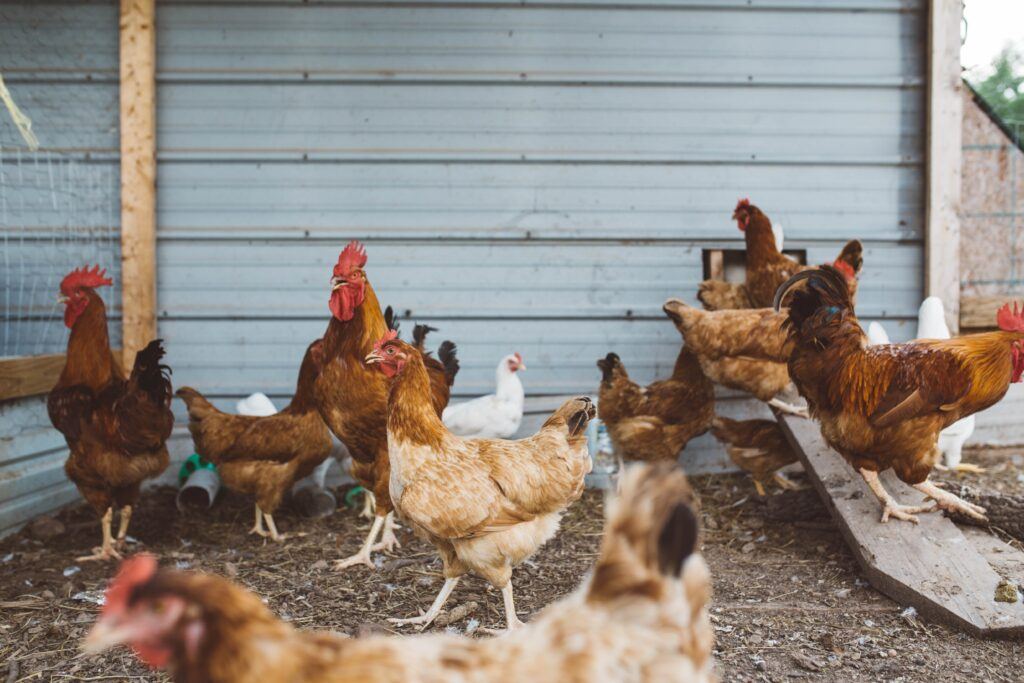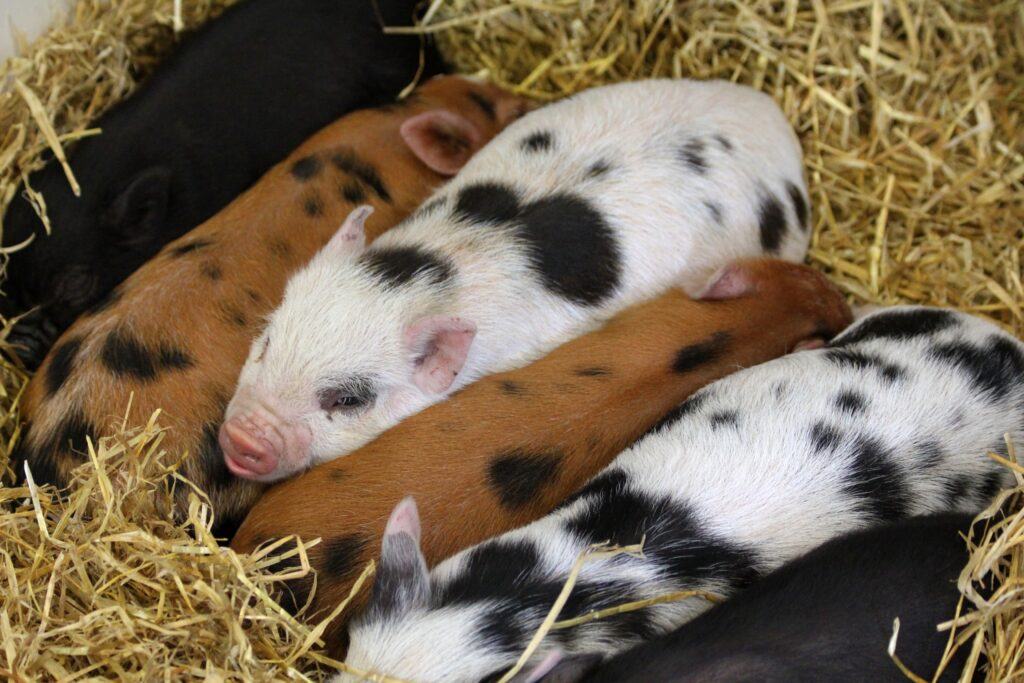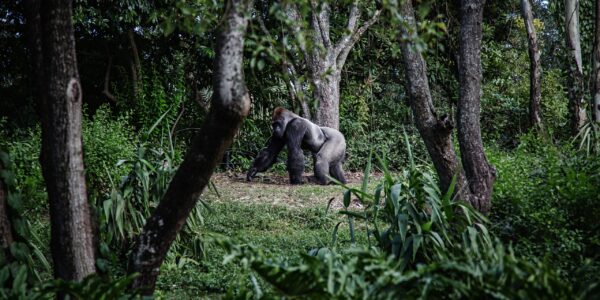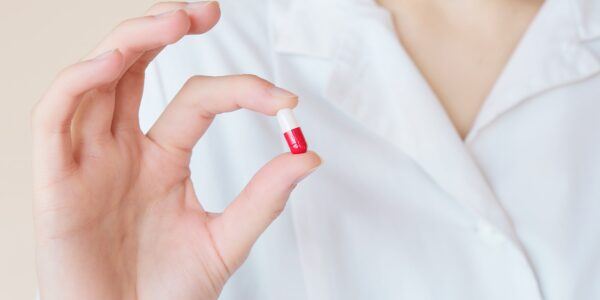Ocean Harvest Technology produces seaweed-based functional feed ingredients for animals. Together with BaseClear, the company is now investigating the effects of its seaweed blend on the animal microbiome and health. “On the market you hear a lot of claims about new gut health ingredients, but few of these claims are backed by clear evidence. At Ocean Harvest, we work with BaseClear to create such data so that when we say we have a strong prebiotic, we can prove it.”
Ocean Harvest Technology develops and manufactures animal feed ingredients based on seaweed. Its product range consist of seaweed blends for livestock and companion animals, which are based on a mixture of different species of brown, green and red macroalgae. OceanFeed™ blends contain prebiotic polysaccharides and other natural bioactive components that enhance gut microflora and not only support a positive immune response but also a healthier gut in general.
Focus on animal microbiome
There is an increasing interest in the status of the gut microflora of animals and the effect of feed on this indicator of gut health. Jason Sands, product portfolio manager at Ocean Harvest Technology in the UK, explains: “For a long time, farmers relied on antibiotics and other chemical additives to ensure animal health. However, the overuse of antibiotics has led to resistance and regulators are now banning them in an increasing number of countries. Farmers are therefore in need of more sustainable solutions to improve the health of their animals. The analysis of the microbiome can play an important role in that, since an animal’s health is strongly affected by the status of its microbiome.”
Derek Butler, commercial director at BaseClear, confirms this. “We are observing an increasing demand for the analysis of the microbiome of animals. While a few years ago, this type of analysis was mainly requested for model animals, now we see a growing interest in the analysis of the microbiome of agricultural animals. Sometimes the questions are related to antibiotic resistance and residual antibiotics, while in other cases it is more related to feed conversion rates.”
Graham Ellis, CEO of Ocean Harvest Technology, expects that in the near term, the analysis and knowledge of the animal microbiome will prevail over the analysis of the human microbiome, although currently the analysis of the human microbiome is technically leading. “We have much better control over the diet and living conditions of animals, while humans have different diets and different stress conditions. It is therefore significantly easier to obtain statistical outcomes from the analysis of the animal microbiome versus that of humans.”
Scientific basis for health claims
Ocean Harvest Technology started a collaboration with BaseClear in 2018, since they didn’t want to make claims about the prebiotic effects of their animal feed ingredients without having scientific backing. “On the market you hear a lot of claims about new gut health ingredients, but few of these claims are backed by clear evidence. At Ocean Harvest, we work with BaseClear to create such data so that when we say we have a strong prebiotic, we can prove it.” says Ellis. The company has already demonstrated the effect of its seaweed blends on animal performance, but now they also want to show the underlying effect on the animal microbiome.
Within this project, BaseClear started to analyze the microbiome of pigs and poultry using 16S profiling. For this, Ocean Harvest Technology delivered samples of animals that were fed with normal feed and samples of animals that were fed with seaweed-containing feed. Sands elaborates: “There is more and more public information about how a healthy microbiome should look, and there is also growing evidence about how microbiome profiles correlate with the overall performance of animals. That is what we want to use for our research. We want to correlate microbiome profiles to the overall health and performance of animals, such as their feed efficiency, and see how this is affected by our seaweed blends.”
“In principle, we could even go one step further and do a deeper type of characterisation based on metagenomics and transcriptomics. That would provide even more information about what the bacteria in the gut are doing,” Butler elaborates.
Microbiome analysis as a tool for customisation
When talking about the future vision, the ideal picture would be to use real-time animal microbiome analysis as a tool to offer farmers a customised or variable animal feed blend based on the analysis of their own animals. “This is an exciting idea. But it is therefore necessary to reduce the turnaround times and prices of the microbiome analysis. The state it is in now is fine for research and development, but not for the use as a tool for our clients,” Ellis says. Butler expects that this will indeed be possible in the future. “In fact, the technology for this is already available, namely the Oxford Nanopore sequencing technology, which we also have available in our lab,” he says.
 Sampling at the farm
Sampling at the farm
“This collaboration project wouldn’t have been possible without the readymade RNA sample stabilisation tubes that clients of BaseClear can use to send their samples to the BaseClear laboratory”, says Ellis. “Many companies and institutes request clients to send the samples on dry ice or liquid nitrogen, which wasn’t really an option for us. You can’t go to a farmer and ask if he doesn’t mind taking a sample and storing it at minus eighty degrees! It wasn’t widely known that there are alternatives for that. We were very happy to discover that BaseClear were willing to accept sample tubes that can be transported at ambient temperature, which enabled us to do the research in the way that we wanted.”
Summary
Ellis concludes: “At Ocean Harvest, we’re very proud to be able to share these type of analyses with our customers and those intending to trial our products. Invariably, it’s the first time that they’ve seen data this clear and conclusive. We’re extremely happy that our collaboration with BaseClear is helping farmers make a confident decision to reformulate away from problematic ingredients like antibiotics, and to use natural options which are fundamentally enhancing the animal’s health and performance.”
 Experts meeting on animal microbiome analysis
Experts meeting on animal microbiome analysis
If you want to learn more about the analysis of the animal microbiome, you are invited to attend the experts meeting that we have organised on the 28th of November in our auditorium. Jason Sands from Ocean Harvest Technology will be one of the speakers.
Click here for more information about this experts meeting.
For more information about Ocean Harvest Technology visit https://www.oceanharvesttechnology.com/.
Related items


 Sampling at the farm
Sampling at the farm Experts meeting on animal microbiome analysis
Experts meeting on animal microbiome analysis

